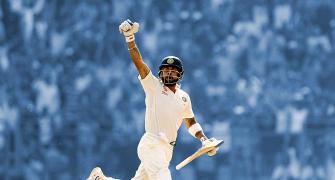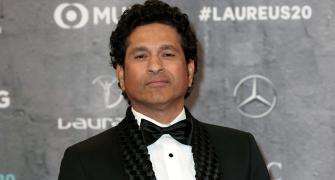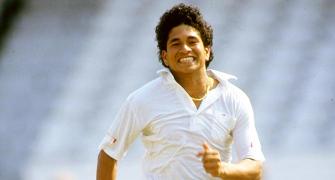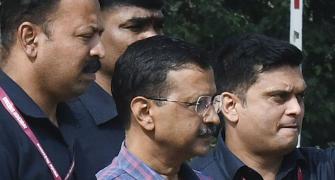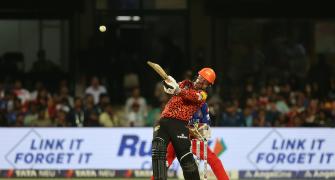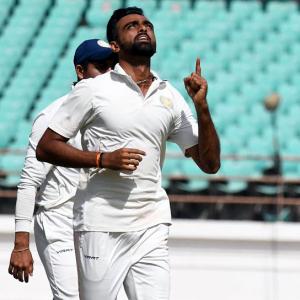'He didn't want to be a stagnant cricketer, he always wanted to work hard.'
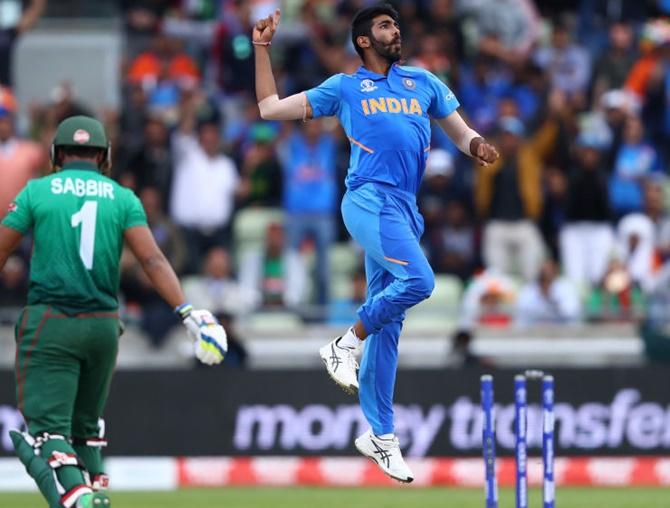
After making his debut at 17 as Test cricket's youngest wicket-keeper in England in 2002, Parthiv Patel had to face to the harsh realities of life when he lost his place after a couple of years as his performance with the gloves dipped.
But the axing only made Parthiv more determined as he went back to domestic cricket and returned back better and stronger.
After some consistent performances in domestic cricket, Parthiv forced his way back into the Indian team. He played one Test in 2008 when he replaced a struggling Dinesh Karthik for the third and final Test against Sri Lanka in Colombo after Mahendra Singh Dhoni opted to rest out the series.
That was the only Test match he played for another eight years, but he did get a few more chances in ODIs and played quite a few games in 2010 to 2012.
Under his captaincy, Gujarat became a force in domestic cricket as they clinched its first-ever Ranji Trophy title in 2016-17 after beating Mumbai in the final, while also becoming the first team to win all three domestic titles -- the Ranji Trophy, the Vijay Hazare Trophy one-day tournament and the Mushtaq Ali Trophy T20 tournament.
Under Parthiv's watch, Gujarat discovered pace sensation Jasprit Bumrah in the 2013-2014 season, who made an immediate impact with seven wickets in his debut Ranji game against Vidarbha.
Bumrah hasn't looked back since -- going on to conquer the IPL before establishing himself as one of the leading fast bowlers in world cricket.
In the second part of a multi-part interview with Rediff.com's Harish Kotian, Parthiv reveals what makes Bumrah so special.
In 2011, you were once called up to replace Sachin Tendulkar for the ODI series in South Africa. Were you surprised by that call up as you were selected as a specialist opener in an ODI?
I was called in because before that I played in the home series against New Zealand. I got to play two games and I scored 50s in both games.
In domestic games I was scoring more than any pure batsman of the side; so, being called up as a specialist batsman never surprised me.
The only reason for that is every team I play in I think as if I am the specialist batsman in the side.
Opening the batting requires a different technique and a different mindset. So how did you work on those aspects?
In domestic cricket, like in the Ranji Trophy, the batting position didn't matter for me; it never bothered (me).
In the Ranji Trophy, in the second innings when we were chasing or when we were trying to set some sort of target, I opened.
In white ball cricket and also in T20s, I have always been opening.
I am not a person who is bothered about batting in a particular position; it didn't matter to me.
You opened in the last two ODIs in South Africa in 2011 where you partnered a young Rohit Sharma at the top of the order.
Did you ever imagine at that point that your young opening partner would go on to make such a big impact in limited-overs cricket?
Rohit has been an outstanding performer for so many years.
You are talking about the South Africa series, but in 2008-2009 he made his Deodhar Trophy debut under me in Udaipur against North Zone, where he scored 143 and you could see then that he was a special talent.
But only talent can't take you places and Rohit has proved that with talent he also works hard.
Having played with him for Mumbai Indians for a few years I have seen how hard he works on his batting. He works hard on his fitness and the results are there for everyone to see.
I am so glad that he has achieved so much in the last few years.
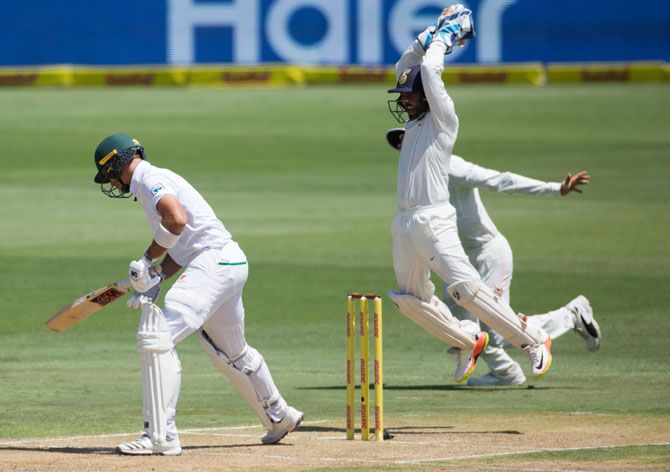
You played two good knocks in the three Test series against England in 2016, when you were called up to the Test team after a long wait of eight years.
Despite that you didn't retain your place and got another call-up only two years later when you played two Tests in South Africa.
After that you have never been considered.
Was it ever conveyed to you by the selectors as to why you were not selected?
No, I wasn't ever conveyed why I wasn't picked.
They have talked about it that I am not in the side but I was never told the reason.
It was a bit difficult to digest in a way. Even in Australia (in 2018), I was the second wicket-keeper and then I didn't play after that.
The message, or whatever, after the Australia tour was also never conveyed why I have not been picked.
Would you say that there should be better lines of communication between the selectors and the players?
No. I believe there has been communication, they have been communicating; there is no doubt about it.
But, as a player, I personally feel that if a player is told why he is not picked, it is a very difficult task.
That is not the easiest thing to do; you got to give it to the selectors on those terms.
Honestly speaking, I can't say that there can be a better communication or not because they have been communicating, there is no doubt about it.
But if I look at my case, I thought after the Australia series I was never told anything.
At 35 you still believe you can make another comeback for India?
Always!
That is the reason why you play.
I am still motivated enough, still working hard enough.
I am at my fittest. I played in the Ranji Trophy semi-finals, where I got 93 (against Saurashtra in February-March).
I have been keeping well, I have been batting well, I am scoring runs in the IPL. So, why not?
In domestic cricket, you made an impact as both player and leader.
As captain of Gujarat, you helped your team conquer all three domestic titles.But the biggest achievement must be winning the Ranji Trophy title for the first time in 2016-2017, after beating Mumbai in the final.
How special was that achievement?
It was very, very special.
When someone is playing for their state, they have two goals: One is to win the Ranji Trophy and the other is to play for India.
I would certainly believe that, and I am quite fortunate that I could win the Ranji Trophy for Gujarat.
It was not just me, but we won it as a team.
It didn't happen overnight. To win the Ranji Trophy you have to play well over the course of two-three months and the process starts a few years earlier.
We started our process four-five years before we won the title.
We brought in young players, brought in a few professionals and we all worked towards winning the Ranji Trophy.
It feels great that I was at the centre of that contribution in winning the Ranji Trophy.
A lot of good young players have come through under your captaincy in Gujarat.
Absolutely. I feel proud when I see Jasprit Bumrah performing the way he is performing for India.
I feel proud when Axar Patel is doing well.
I feel proud when Priyank Panchal is doing well or Manpreet Juneja or Roosh Kalaria.
Those guys have gone on to play for India 'A' while Priyank is almost knocking on the door of the Indian team.
I feel proud that everyone has made progress as individuals as well as a team.
You see there are a lot of states which you will see individuals, but you won't see a team or you will only see a team winning, but not the individuals. I am glad that we could create that mix of individuals who have gone on to play for India, and as a team also we have gone on to win the domestic titles.
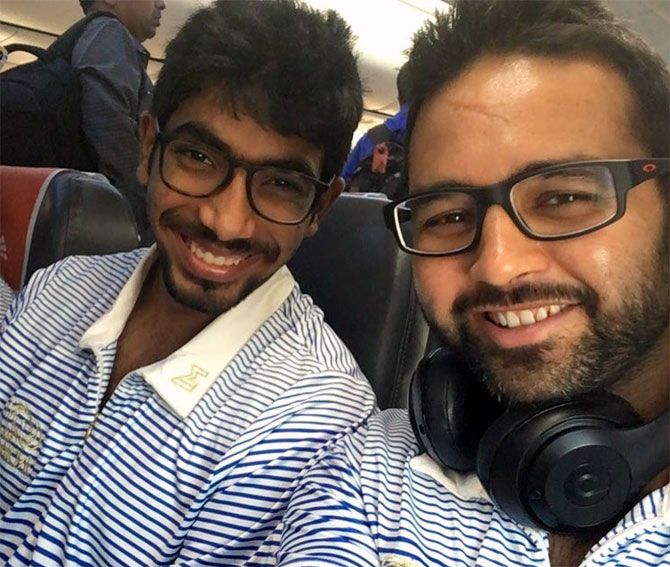
Jasprit Bumrah came into the team in the 2013-2014 season when you were captain.
What were your impressions when you saw him bowl for the first time because he had such a different action?
He was completely different.
Even before he made his debut he had played T20 and John Wright was looking at him as the scout for the Mumbai Indians.
He called me and told me, 'He is the guy we should be looking at'.
And I am not surprised at the way he is performing, because he works really hard.
He has an unusual action, but the kind of work ethic he has, I am not surprised that he has reached this level.
People only remember that Bumrah made an impact in the IPL for the Mumbai Indians, but before that he did really well for Gujarat in the Ranji Trophy. Isn't it?
He has; he has won us so many games, he has bowled so many overs.
He always wanted to be the guy who was ready to bowl when the team needed, be it the Ranji Trophy or any other format.
I can recall a lot of games he has done well. He played the Ranji Trophy for a couple of games.
And in the Vijay Hazare final he took a five-wicket haul (against Delhi in December 2015).
So there have been a lot of games where he has performed well for Gujarat. I think because he has bowled so many overs in domestic cricket, it has helped his approach in Test cricket as well.
Domestic cricket is as good as playing in the IPL.
IPL will teach you to handle the pressure or playing against big stars, but domestic cricket will teach you how to grind, how to set up batsman, because you will be playing against a lot of experienced players.
One good quality about Bumrah is that he is a quick learner and he has taken big strides since making his debut for India in 2016 across all formats.
That was there from the beginning; he always wanted to improve.
He didn't want to be a stagnant cricketer, he always wanted to work hard.
You can see how he has worked on his fitness. Initially, when he came into the team, he was only bowling in-swingers, now he has also worked on bowling out-swingers.
As I said, he never wanted to be a stagnant player and that quality is very important in any player.
When you want to improve you have to work hard. He just didn't want to improve, but he was also willing to work hard for it.
You have seen him very closely since he first came into the Gujarat team. What sort of a guy is Bumrah because he doesn't give out much on the field? He doesn't celebrate much when taking wickets or isn't too an aggressive on the field.
He is very level-headed; he will give you respect.
He comes from a good family background. He is very disciplined. And if you see, there isn't much change in him, on the field or off the field.
- Also read: 'It is always great fun playing with Virat'

